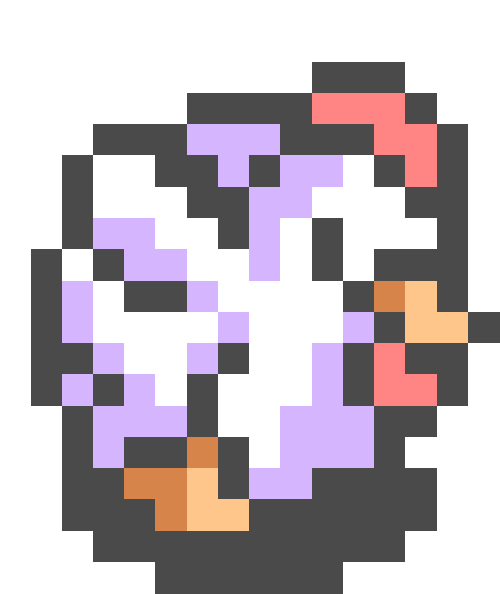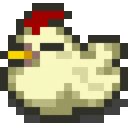 The Chicken Tender
The Chicken Tender
 The Chicken Tender
The Chicken Tender
![]() Home
Home
 Illnesses and Treatments
Illnesses and Treatments
![]() Chicken Diet
Chicken Diet
Chicken Psychology 101
Rooster Management
Shed Coops
- Genetics (most chickens are bred for fast growth and productivity which burdens their internal organs)
- Rich/poor diet (chickens fed scratch grains, cracked corn, seeds, mealworms/dried bugs, and table scraps are more susceptible)
- Lack of exercise and obesity
- Kidney, heart, or liver damage
- Stress, including overcrowding in the coop and run
- Extreme unsanitary conditions
- Infection
- Cancer
- Other underlying health problems
If your bird is starving themselves, feed them whatever they'll eat and keep reading. (A page about foods for chickens-without-appetites is in-planning. In the meantime, try scrambled egg or cooked rice dampened with a little water.)
- Removing Threats. Check the chicken yard for poisonous plants or animal bait and remove these. Trap predators and pests instead. If neighbors potentially have access to the chicken yard, add additional fencing or move your birds to a safer place. Secure compost bins and their contents. Lock up chemicals. Scour the yard for small pieces of metal and garbage. Increase coop and run size if insufficient in space. Clean coop and spread fresh dirt in the run.
- Drainings. Draining your chicken's built-up fluid will help them live more comfortably. Draining is easiest to perform when your chicken is in the "waddling" stage, where they can barely walk and are dragging themselves around. Their underside will feel like a taught water balloon, making it easier to draw from. For that reason, I recommend only performing it then.
Draw from the bird's right side, at the lowest part of their abdomen down near their leg.
Watch this youtube video by Teresa Johnson for instructions. https://www.youtube.com/watch?v=1G7GWlkq_6M
Note: Drawing more than 2 cups/473ml of liquid may send your bird into shock. This is often lethal. Pay attention to your bird's comfort level during drainings. If they've cooperated for most of it but suddenly start panicking, pull the needle out and discontinue. Keep in mind that this procedure can potentially be fatal in birds with severe organ failure, as they're already on the brink, sadly.
Feed your bird some egg afterward to help them recover. If they're doing poorly, they'll need an avian vitamin supplement, such as Nutri-Drench for poultry (obtainable from most farm supply stores).
It's possible to buy supplies on amazon or ebay, but here are some more reliable websites (these are links to needles, but you can search for "luer lock" syringes on these websites as well. The biggest size is usually 60ml):
Where to buy needles in the US: ShopMedVet.com, CalVetSupply.com, ThrivingPets.com
In the UK: Medisave.co.uk, Medisupplies.co.uk
I found these links from FelineCRF.org, which is totally unrelated to chickens but has amazing resources.
Gauge sizes are weird and work backwards to how you'd think. 21 gauge needles will go in smoother but will drain slower due to their tiny size. 16 gauge needles will go in less-smoothly but drain much faster due to their large size.
- Diuretics. This is the best way to keep your chicken comfortable for the rest of their life, however much time they have left. It should be possible to persuade your vet to put your bird on a diuretic like Spironolactone (furosemide is another diuretic but it's ineffective in my experience), though it's likely they're unfamiliar with medicating chickens with such and will refuse. I recommend printing the poultrydvm page on spironolactone and bringing it to the vet to help convince them. In any case, the dosage is 1 mg per kg of bird, by mouth, once a day. See more at: http://www.poultrydvm.com/drugs/spironolactone
It's likely that your vet will still refuse, as they'll view this as heroic meassures to prolong the life of an expendable farm animal. Tell them your chicken is part of the family. Don't feel ashamed to cry; it will only help your chicken's case. If your vet is unfazed, prescriptions drugs are certainly obtainable from overseas online drugstores. You can read more on this pill information page.
I recommend a certain online drugstore in Vanatu. It's https://www.inhousepharmacy.vu
Compounding medicine. If you're going the independant route, you may need to compound pills with homemade cornstarch "pudding" to cut down the dosage, which is necessary with large MG sized pills. You'll need 3ml/cc luer slip (oral) syringes for this.
Recipe:
Stir 1/4 tsp corn starch in 1/4 cup water. Cook in a small sauce pan on medium-low heat for about 6 minutes, stirring ocassionally*. The pudding is done when it has a gel-like consistancy (shake the pan; if the mixture sticks to the sides of the pan, it's done.) Cool pudding first. Do not add medicine to hot pudding!
If the pudding is too thick to be drawn by a syringe, mix in a few drops of water until it is. If it's too thin, cook a little longer. *Over-stirring can break down thickness in cornstarch puddings.
The Math:
Math was done to figure out the target dosage, mg per ml. This is for 4mg Spironolactone per 1ml/cc of pudding. Split a 100mg Spironolactone into 4 pieces. Each piece is 25mg. Add one crushed 25mg piece into 6.25CCs of cornstarch pudding (measured with a syringe). Administer 0.50 cc/ml of this mixture by mouth via syringe, once a day. For a big chicken (8 lb bird), administer 1 cc/ml, once a day.
Note: You can easily crush pills between two spoons
Mixture notes:
Only add crushed medicine to fully cooled pudding. Store medicine mixture in fridge for up to a week (I recommend only making a week's supply at a time due to potential spoilage or reduced efficacy). Throw-out any unused leftover pudding. You can try freezing unused pudding for future compounding, but it will be thinner once it defrosts. Do not freeze medicine.
- Antibiotics. Infection can occur, especially with drainings. Cloudy or dark ascites fluid can be an indication. You can get antibiotics from a vet. If not, check your medicine cabinet for antibiotics and look them up on poultrydvm.com for compatibility, dosage information, and more.
I recommend 62.5mg to 100mg of Metronidazole once a day. Check the pill page for more information.
- Herbal Supplements. It's difficult to estimate the dosage, purity, or efficacy of herbal supplements, so I only recommend food grade forms. Feeding flax seed layer pellets (Nutrena Hearty Hen is a good one) and mixing in dried oregano leaves (bought in bulk at a bulk food or restaurant supply) are the only kinds of supplementation I recommend.
- Complications. Egg Yolk Peritonitis (Internal Laying) can occur with ascites and may need to be treated as well.
- A warm bed and shelter away from the flock (ideally inside). A spare room works. I make my birds a hospital bed in the hallway tub.
Bedding maintenance: even sick chickens defecate a lot. You can scrape and bleach old towels, use newspapers, or buy disposable puppy pads.
- A waterproof heating pad placed under their bedding will help with their aches. Make sure they have space to get away from it in case it gets too hot.
If you absolutely don't want to go the bedding route, get a big cardboard box and fill it with pine shavings or newspaper (warning: avoid cedar chips). Cut down the box if you want to give them access to the room outside it.
If you need to confine your bird, get a big dog crate and put it in the corner of a room. Load the tray with pine shavings daily. Keep the cage covered with a sheet to keep the mess down. If your chicken can still run around, letting them out with the flock during the day is fine.